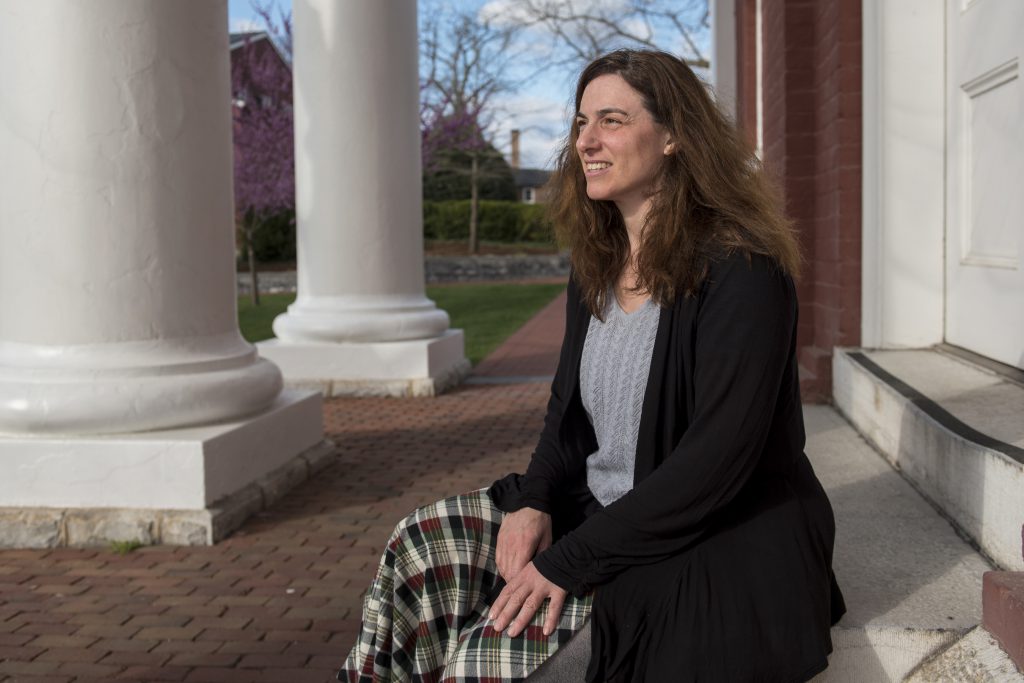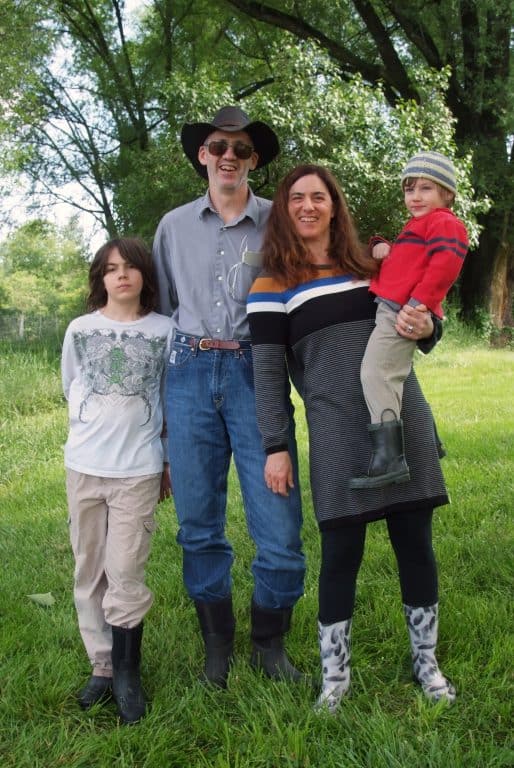Narratives on Self and Society Sasha Goluboff talks about her farm, the influence of technology on student sociality and her most recent project involving a black church in Brownsburg, Virginia
“I’ve been interested in the importance of emotion and connection among people, so I’ve been following that thread throughout my work.”
Title: Professor of Cultural Anthropology, Chair of Sociology and Anthropology
Department: Sociology and Anthropology
Education: B.A., Colgate University; Ph.D., University of Illinois
Research Interests: My work focuses on the anthropology of emotion in a variety of geographical and historical contexts. From investigating practices of mourning and grief in Azerbaijan to analyzing the delight and terror of homeplace in Antebellum Virginia, I view emotion as a story — a narrative told about self and society, as well as a discourse about interpersonal connections.
What courses do you teach?
My courses include Introduction to Anthropology; Campus Sex in the Digital Age; Terror and Violence; Childhood; Feminist Anthropology; Theorizing Social Life; and Food, Culture and Society.
What hobbies do you have?
I like to keep active, so I run. I just ran a 10-miler in Philadelphia and have also run half marathons. I’ve been ramping up my swimming, and I competed in the local masters meet in March. I like to knit when I have the time.
What is a little-known fun fact about you?
They say a woman marries someone like her dad: my dad’s a tall mathematician, and my husband’s tall and a mathematician (Professor Alan McRae also teaches at W&L). I have two sons — Liam, 10, and Aiden, 3, and Liam likes math, so he definitely has the math gene.
Why did you initially decide to become an anthropologist?
I’ve always been interested in other societies. In college I went abroad to Russia and really enjoyed being in another culture — talking to people and seeing how people live their lives is fascinating. A guest lecturer at my undergraduate school (Colgate University) said he had the best job in the world. He said he got paid to hang out with people, and I thought, “Yeah, I could do that.”
What do you enjoy most about W&L?
I particularly enjoy seminars, where we talk about the big ideas in anthropology and get different points of view. With anthropology, the main tenet is to make the strange familiar and the familiar strange. We examine other ways of life and try to understand them and realize that they do have a logic and coherence. Then, we flip that around and say, “Okay, now that we know how other people do things, let’s look at our own lives and see what we do is actually not so normal.” I like leading students through that process.
What does your research generally focus on?
I’ve been interested in the importance of emotion and connection among people, so I’ve been following that thread throughout my work. My Ph.D. dissertation examined Jewish religious revival in Russia and understanding of faith in the post-Soviet context. In Azerbaijan, I worked with Mountain Jews to examine their mourning rituals where women would lead the mourning. I found it very interesting, the way in which women ritual leaders would try to make women cry collectively. What does that mean for emotion when people are coerced into crying, and what’s considered true emotion versus performance, and is it possible to differentiate between the two?
A more recent project involves looking at the local black church in Brownsburg, Virginia, where I live. I am interested in African American spirituality within a larger, white-dominated framework in Virginia, and traced the lineage of that church back to former slaves in the area. I found lots of pre-Civil War material, including wills, chanceries, cases and surveys — like the census — and letters. I’ve exhibited that material in the Brownsburg museum and here at W&L’s library. I’m trying fiction writing — combining ethnography with fiction — and that’s been a lot of fun for me.
Describe your work on the influence of technology on student sociality.
I thought it would be fascinating to look at how cell phones impact dating practices on campus. Three research assistants — seniors at W&L — did interviews with students about their cell phone and dating practices, especially texting. And we also conducted a survey. One of the things I discuss in the publication that came out of that work, “Text to Sex: The Impact of Cell Phones on Hooking up and Sexuality on Campus” (in Mobile Media & Communication), was that for women, texting someone they are interested in can be a liberating experience, but only if that interest is reciprocated. Otherwise, women can use the excuse that their forwardness was the result of a “drunk text.” Men who talked with each other about how to text women were essentially having discussions about relationships. That’s not something men typically do, but they were allowed to explore their more “feminine side” due to this technology.
Tell us a little more about your farm.
We started with chickens, and I read somewhere that chickens are like the gateway drug to farming, which definitely happened with us. Once we built the chicken house, all of a sudden we needed to get more things. In addition to a big vegetable garden, we’ve got heritage hogs, called guinea hogs, St. Croix sheep, and two top-bar beehives. The first time we got a litter of piglets, we wanted to figure out if they were male or female, so we turned them over, and apparently all piglets have nipples. So there we were, wondering, male or female? We couldn’t tell. Turns out they were all female, which is really odd, but we were just standing in the field with this screaming pig on its back trying to figure out its sex.
– interview by Wesley Sigmon ’16
If you know any W&L faculty who would be great profile subjects, tell us about them! Nominate them for a web profile.



You must be logged in to post a comment.